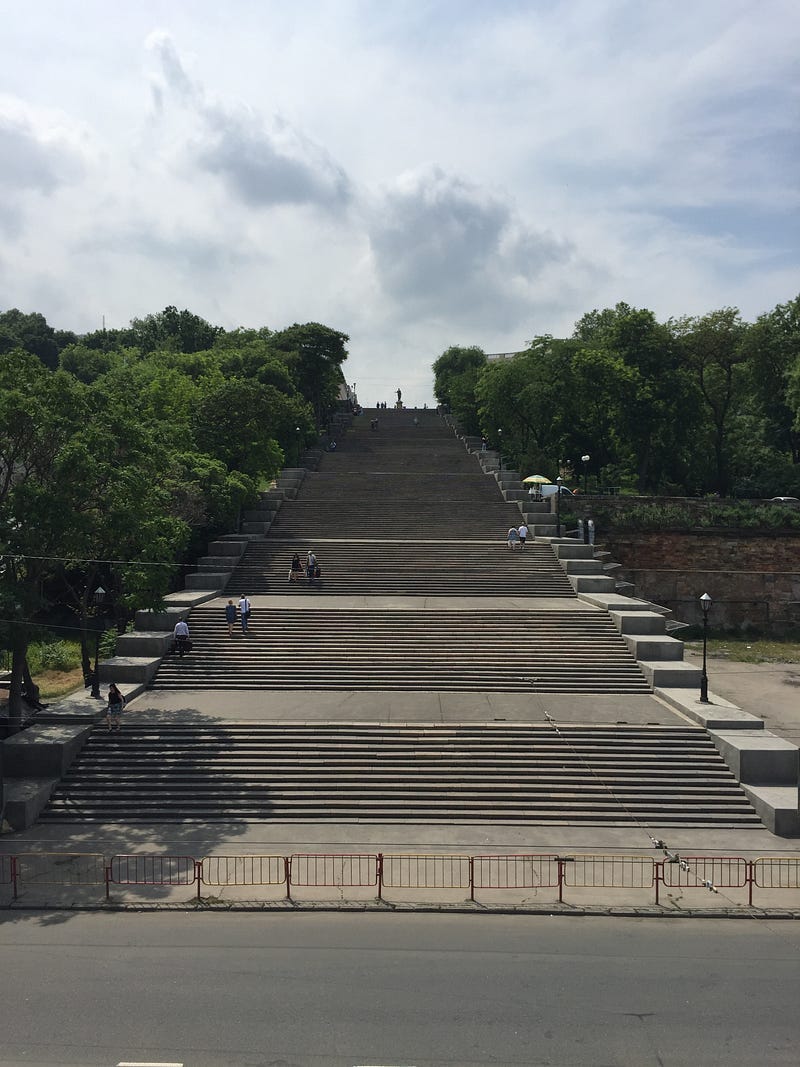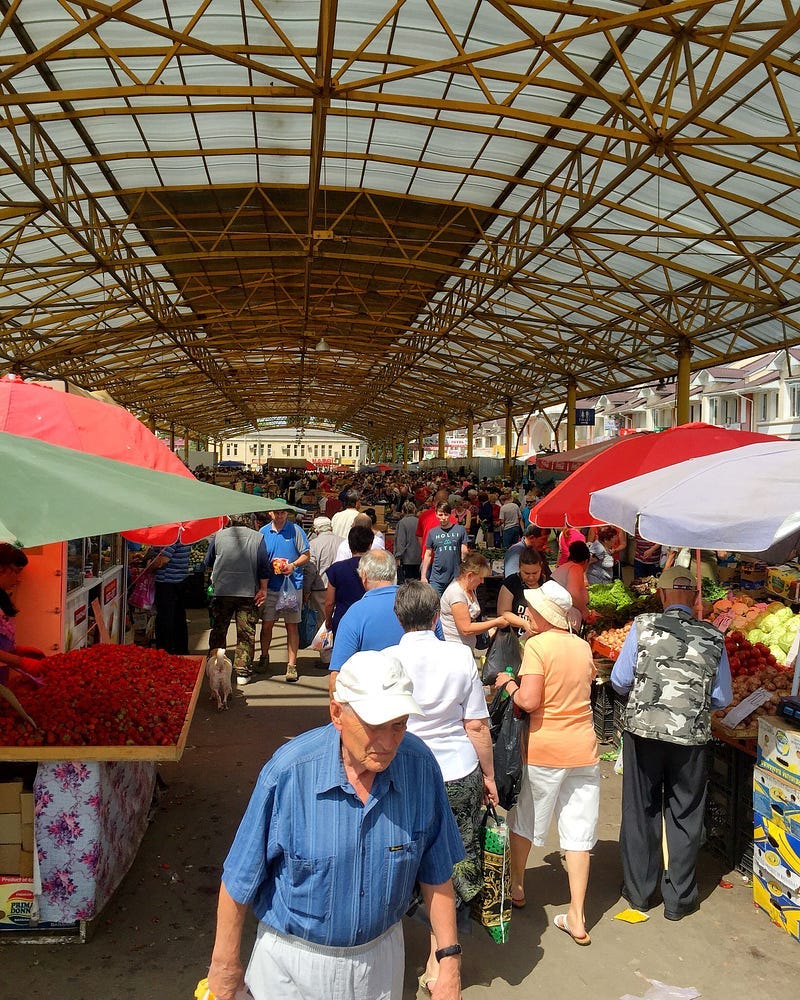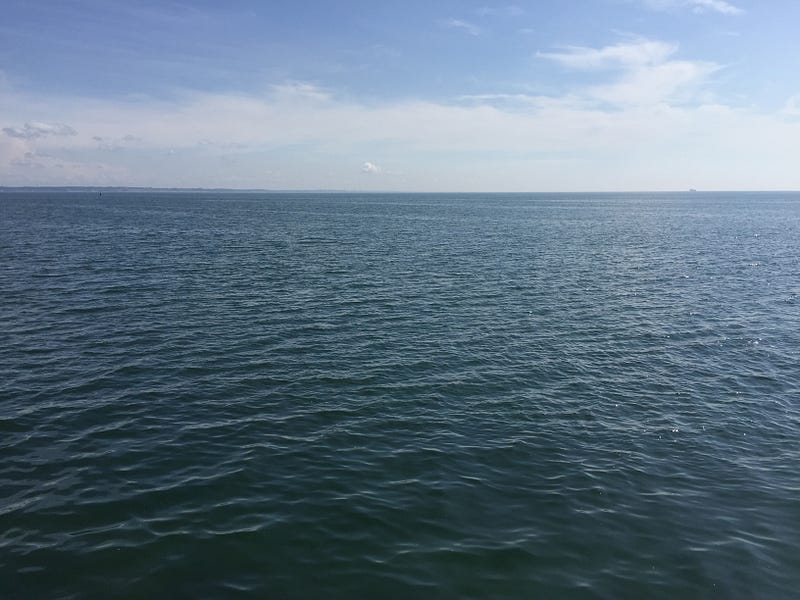Being in Odessa
Impact Hub Odessa invited me to give about … well … Startups and why I think that Startups in the form as we know them from places like…
Impact Hub Odessa invited me to give about … well … Startups and why I think that Startups in the form as we know them from places like Silicon Valley or Berlin might not be necessarily the best way to build sustainable businesses.
Here’s a short description of my talk as submitted to the Impact Hub:
I want to talk about how Venture Capital model works — in an abstract way, I’m not a financier and can’t get into the details of how a term sheet works — and why it creates a model in which startups have only the option to go a) broke b) sell to some company (often an US company) and c) do an IPO. While that can be very lucrative for the Venture Capitalists and for some of the startup founders, it rarely creates a sustainable model.
To understand the purpose of the talk, it makes sense first to learn a bit more about Impact Hub. The one in Odessa is part of a big network of similar hubs around the world. There are 81 one of them around the world. As it is natural for that kind of organizations, they have a common goal and principles but operate mostly loosely from the rest of each other. What might sound as drawback can also be an advantage. Mainly then when it comes down to creating something that can truly be local. Here’s their mission statement:
An innovation lab. A business Incubator. A social enterprise community center. Impact Hub offers you a unique ecosystem of resources, inspiration, and collaboration opportunities to grow the positive impact of your work. Joining our diverse community of members and collaborators will inspire, connect, and enable you to develop your best work every step of the way.
While I stayed only for three days, my impression of Impact Hub Odessa was that they succeeded in exactly the core principles of the global organization while creating a local hub for people of all ages, different perspectives, dreams, and ambitions. It looks very much like most Co-working spaces, but underneath the superficial of this space that is stretched on four different floors is a lot of potentials. Especially in a place like Odessa and / or Ukraine.
That being said, I feel that my talk might have been misplaced a bit. It was very well received, but my impression was that it wasn’t as urgent of a conversation in Ukraine as it might be in the US or Europe. There is no bubble of too many investments into businesses that are trying to solve the problems of rich people there and so whatever people regard as a startup mostly resembles what we know as a small business that gets a grant or some financial support from the State and / or from Non-Governmental entities. In the case of Ukraine, the Soros Foundation and its offshoots seem to be almost omnipresent.
In my talk, I focused on the validity that particular models are employable to build sustainable environments. Looking at startups as we know them from Silicon Valley or Berlin, it is easy to see how the approach is favored by the people who already have a disproportionate access to capital. The returns that those companies can generate for a few individuals are excessive. This — usually — comes at the expense of lasting business models or a sustainable environment in which said businesses can operate.
I have been making this point for a long time. In 2013, I published a critic of the Berlin Startup Scene and emphasized the importance of looking at other businesses to learn about sustainable, self-reliant business models. The German Mittelstand was and is still my favorite example in that regard. While those mid-size businesses (that generate up to a Billion in revenue) are certainly not without their problems, they have been around for a long time and are embedded in their communities. In much the same way as this article at Aeon makes the argument that there is more value in maintenance than it is in innovation, those Mittelstand businesses have been generating returns for themselves and their communities for a very, very long time. It’s one reason why a significant amount of people tend to work for the same employer for a very long time. Here’s a statistic from a company that is a good representative for a manufacturing Mittelstand company:
This is not a black-and-white issue, but it is an urgent one because our perception is skewed by the extraordinary abundance of liquidity that companies in Silicon Valley have. This abundance creates excessive demand from their side which is in many cases the only way how so many startups generates those 10x returns for their investors despite the fact that even the most successful ones don’t seem to be good causes for acquisition. This is especially visible in the acquihires of mostly failed companies. Instead of accepting the fact that they have not succeeded in their mission, everyone can pretend to be successful. A round of congratulatory tweets for everyone involved. If this is what will get people out of bed, fine. It’s a way to conduct business, but it shouldn’t be regarded as a blueprint for economies like Germany that have a very long and vigorous track record of businesses that are the reason why we enjoy here an unrivalled economic stability.
But giving this talk and having a conversation about it with the audience later wasn’t the most exciting part about this trip. Shortly before my arrival, Impact Hub asked me if I would consider giving another talk to a group of people who fled from places like Lugansk and Donetsk because of the war. They arrived in Odessa and participating in a program that helps them start a business. The participants range both in age and their experience to run a business. Some of them already had a business that they had to abandon, some of them are trying their luck at it at the age of 65.
Attempting to be a bit more self-aware than the average white male from a Western country, I declined to give a talk out of realizing that I couldn’t possibly know what would be significant to those people. But I did agree to be available for a Q&A style of a conversation. Which is what we ended up doing. For over two hours without any interruption. The questions were all in the ballpark of starting something — not necessarily a startup — and ranged from everything like “Should I have an accountant” to more strategic things like “How do I build up a brand” to quite tactical questions around the necessity of whether or not a young manufacturing business really needs a website or maybe a Facebook page should be enough. Amazingly I conducted all of that in Russian. I didn’t think I had that much Russian in me, but I was very glad to have participated in the session. The feedback from the group was quite positive and for me it was an interesting, bubble-bursting experience to be outside of my comfort zone and meet people who in fact are not pitching an idea for how to make people click better on ads, but solve some substantial problems like being able to provide for themselves and their community from a war-torn region.
Absolutely by chance, I ended up being in two countries that are bordering on the black sea this year already. While I highly enjoy visiting my friends in places like London or New York, I have to admit that none of my trips have been as rewarding as going to Georgia or Ukraine. Purposefully putting oneself outside of the self-affirming environment — and not only for a vacation or adventure — is exactly where I hope to be more. It provides a lot more perspective.





